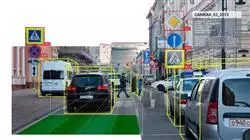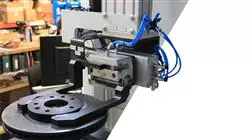University certificate
The world's largest artificial intelligence faculty”
Introduction to the Program
The current importance of Postgraduate diploma makes this program a safe bet, with a market in continuous growth and full of possibilities”

3D Capture Systems plays a crucial role in society by providing three-dimensional information from the real world. This allows intelligent systems to understand, interact and make decisions more actively in a variety of disciplines. An example of this is the video game industry, which uses these tools to control its experiences and user interfaces. However, such instruments present a number of challenges for specialists. For example, in overlapping environments, these mechanisms face obstacles in capturing complete data due to occlusions.
To help professionals overcome these challenges, TECH presents a Postgraduate diploma that will provide them with the most advanced techniques for capturing information. Designed by an experienced faculty, the curriculum will address in detail the composition of digital images, emphasizing color spaces. In addition, it will expose the keys for students to make the best use of digital cameras, taking into account factors such as depth of field or resolution. Also, the didactic materials will provide students with the most advanced visualization tools and the most modern Computer Vision libraries. It will also explore the state of the art of Computer Vision and its wide range of applications.
It should be noted that the methodology of this program reinforces its innovative character. TECH offers a 100% online learning environment, adapted to the needs of busy professionals seeking to advance their careers. In addition, it will employ the Relearning methodology, based on the repetition of key concepts to fix knowledge and facilitate learning. In this way, the combination of flexibility and a robust pedagogical approach makes it highly accessible. In addition, students will enter the a library full of multimedia resources in different audiovisual formats (such as interactive summaries and infographics) to make learning dynamic.
You will delve into the latest innovations in Computer Vision and Machine Learning thanks to this program”
This Postgraduate diploma in Computer Vision contains the most complete and up-to-date program on the market. The most important features include:
- The development of case studies presented by experts in computer science and computer vision
- The graphic, schematic, and practical contents with which they are created, provide scientific and practical information on the disciplines that are essential for professional practice
- Practical exercises where the self-assessment process can be carried out to improve learning
- Its special emphasis on innovative methodologies
- Theoretical lessons, questions to the expert, debate forums on controversial topics, and individual reflection assignments
- Content tha
- t is accessible from any fixed or portable device with an Internet connection
You will master Cloud Computing to store your files and data remotely"
The program’s teaching staff includes professionals from the sector who contribute their work experience to this educational program, as well as renowned specialists from leading societies and prestigious universities.
The multimedia content, developed with the latest educational technology, will provide the professional with situated and contextual learning, i.e., a simulated environment that will provide immersive education programmed to learn in real situations.
This program is designed around Problem-Based Learning, whereby the professional must try to solve the different professional practice situations that arise during the academic year For this purpose, the students will be assisted by an innovative interactive video system created by renowned and experienced experts.
Nurture your professional practice with the most advanced techniques in Digital Image Processing"

Relearning will enable you to learn with less effort and more performance, involving you more in your professional specialization"
Why study at TECH?
TECH is the world’s largest online university. With an impressive catalog of more than 14,000 university programs available in 11 languages, it is positioned as a leader in employability, with a 99% job placement rate. In addition, it relies on an enormous faculty of more than 6,000 professors of the highest international renown.

Study at the world's largest online university and guarantee your professional success. The future starts at TECH”
The world’s best online university according to FORBES
The prestigious Forbes magazine, specialized in business and finance, has highlighted TECH as “the world's best online university” This is what they have recently stated in an article in their digital edition in which they echo the success story of this institution, “thanks to the academic offer it provides, the selection of its teaching staff, and an innovative learning method aimed at educating the professionals of the future”
A revolutionary study method, a cutting-edge faculty and a practical focus: the key to TECH's success.
The most complete study plans on the university scene
TECH offers the most complete study plans on the university scene, with syllabuses that cover fundamental concepts and, at the same time, the main scientific advances in their specific scientific areas. In addition, these programs are continuously being updated to guarantee students the academic vanguard and the most in-demand professional skills. In this way, the university's qualifications provide its graduates with a significant advantage to propel their careers to success.
TECH offers the most comprehensive and intensive study plans on the current university scene.
A world-class teaching staff
TECH's teaching staff is made up of more than 6,000 professors with the highest international recognition. Professors, researchers and top executives of multinational companies, including Isaiah Covington, performance coach of the Boston Celtics; Magda Romanska, principal investigator at Harvard MetaLAB; Ignacio Wistumba, chairman of the department of translational molecular pathology at MD Anderson Cancer Center; and D.W. Pine, creative director of TIME magazine, among others.
Internationally renowned experts, specialized in different branches of Health, Technology, Communication and Business, form part of the TECH faculty.
A unique learning method
TECH is the first university to use Relearning in all its programs. It is the best online learning methodology, accredited with international teaching quality certifications, provided by prestigious educational agencies. In addition, this disruptive educational model is complemented with the “Case Method”, thereby setting up a unique online teaching strategy. Innovative teaching resources are also implemented, including detailed videos, infographics and interactive summaries.
TECH combines Relearning and the Case Method in all its university programs to guarantee excellent theoretical and practical learning, studying whenever and wherever you want.
The world's largest online university
TECH is the world’s largest online university. We are the largest educational institution, with the best and widest online educational catalog, one hundred percent online and covering the vast majority of areas of knowledge. We offer a large selection of our own degrees and accredited online undergraduate and postgraduate degrees. In total, more than 14,000 university degrees, in eleven different languages, make us the largest educational largest in the world.
TECH has the world's most extensive catalog of academic and official programs, available in more than 11 languages.
Google Premier Partner
The American technology giant has awarded TECH the Google Google Premier Partner badge. This award, which is only available to 3% of the world's companies, highlights the efficient, flexible and tailored experience that this university provides to students. The recognition as a Google Premier Partner not only accredits the maximum rigor, performance and investment in TECH's digital infrastructures, but also places this university as one of the world's leading technology companies.
Google has positioned TECH in the top 3% of the world's most important technology companies by awarding it its Google Premier Partner badge.
The official online university of the NBA
TECH is the official online university of the NBA. Thanks to our agreement with the biggest league in basketball, we offer our students exclusive university programs, as well as a wide variety of educational resources focused on the business of the league and other areas of the sports industry. Each program is made up of a uniquely designed syllabus and features exceptional guest hosts: professionals with a distinguished sports background who will offer their expertise on the most relevant topics.
TECH has been selected by the NBA, the world's top basketball league, as its official online university.
The top-rated university by its students
Students have positioned TECH as the world's top-rated university on the main review websites, with a highest rating of 4.9 out of 5, obtained from more than 1,000 reviews. These results consolidate TECH as the benchmark university institution at an international level, reflecting the excellence and positive impact of its educational model.” reflecting the excellence and positive impact of its educational model.”
TECH is the world’s top-rated university by its students.
Leaders in employability
TECH has managed to become the leading university in employability. 99% of its students obtain jobs in the academic field they have studied, within one year of completing any of the university's programs. A similar number achieve immediate career enhancement. All this thanks to a study methodology that bases its effectiveness on the acquisition of practical skills, which are absolutely necessary for professional development.
99% of TECH graduates find a job within a year of completing their studies.
Postgraduate Diploma in Computer Vision
Immerse yourself in the exciting world of Computer Vision and master the skills needed to lead in this ever-evolving field with an exclusive Postgraduate Diploma created by TECH Global University. Designed for those passionate about artificial intelligence and visual perception, this course will provide you with an in-depth understanding of the fundamental principles and practical applications of computer vision. Through a 100% online methodology and a innovative syllabus, you will explore the basic concepts of computer vision, including image acquisition, data preprocessing, and feature extraction. You will learn how computer systems can interpret and understand the visual content of the world around us. In addition, you will develop skills in advanced algorithms and techniques used in computer vision. From object recognition and image segmentation, to motion tracking and three-dimensional reconstruction, you will explore the most powerful tools and methods for analyzing visual data.
Get qualified with a Postgraduate Diploma in Computer Vision
In this groundbreaking program, created by specialists, you'll discover the practical applications of computer vision in a variety of sectors, including manufacturing, medicine, security, transportation and more. You'll learn how these technologies are transforming entire industries and creating new opportunities for innovation. In addition, you'll dive into the world of machine learning and deep learning in the context of computer vision. Finally, you will discover how machine learning and deep learning models can improve the performance of machine vision systems in complex tasks such as object recognition and image classification. From this, you will envision your future as a computer vision expert at the forefront of technological innovation. You will become an in-demand leader, capable of designing advanced solutions that harness the power of computer vision to solve complex challenges in diverse fields. Make the decision and enroll now!







